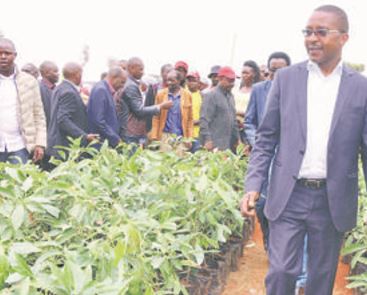×
The Standard e-Paper
Home To Bold Columnists

It is not once that Kenyan have built an excitement around an investment, with disastrous consequences.
There was the quail business, the stock market boom, the pyramid schemes and many more. And now, there is the avocado craze. Will it end the same way? The new deal, to export avocado to China, appears to be the catalyst of mass growing of the crop, with exports of frozen ripe fruits set to start immediately before China later allows Kenya to export unripe, green avocado fruits.